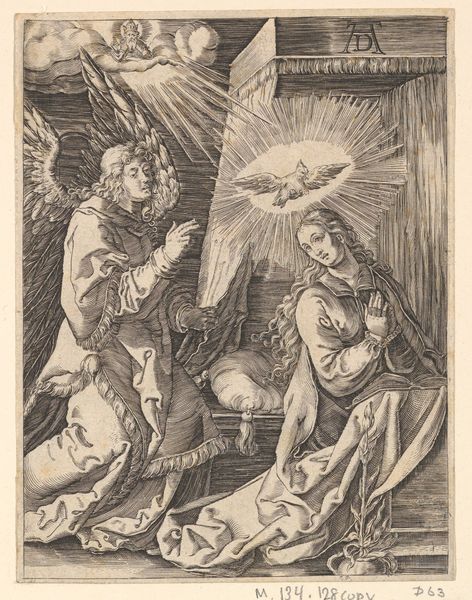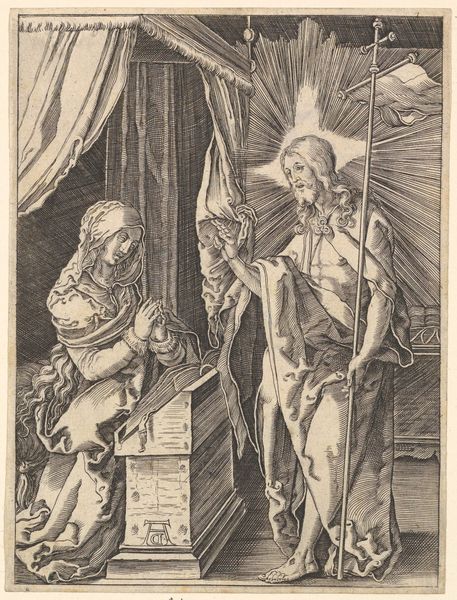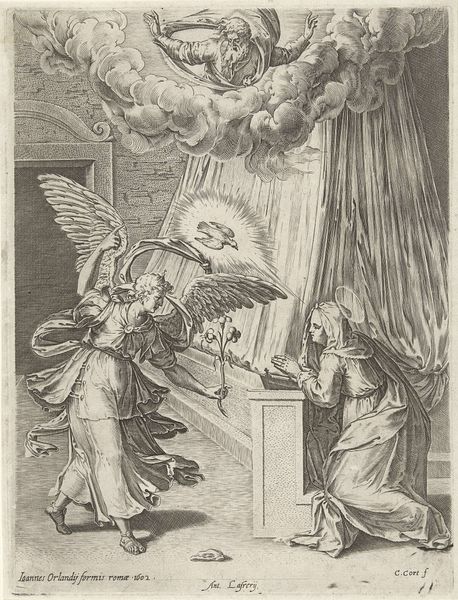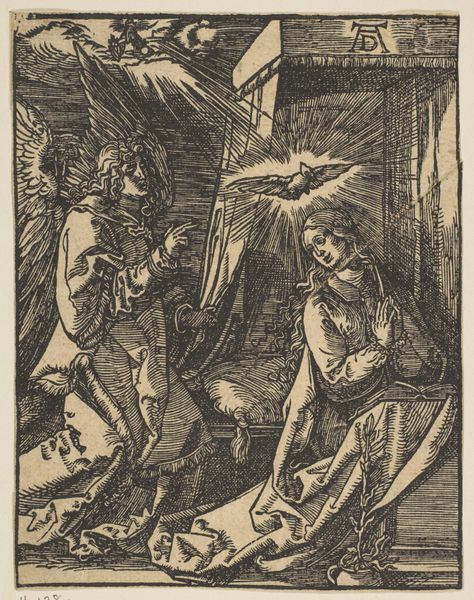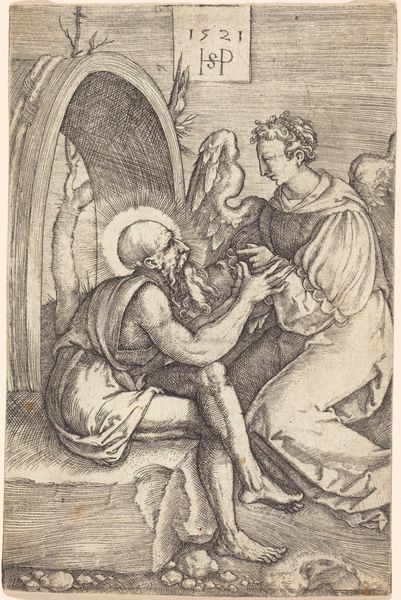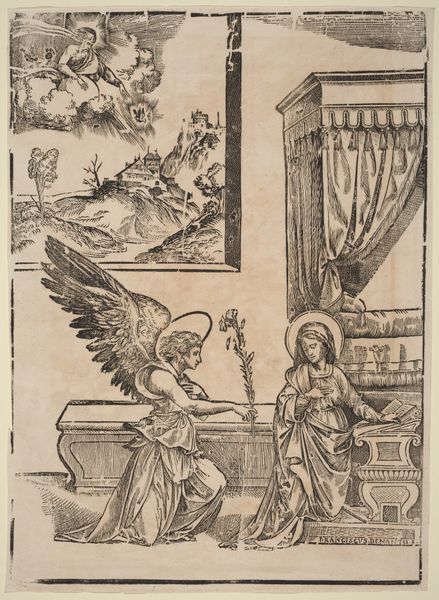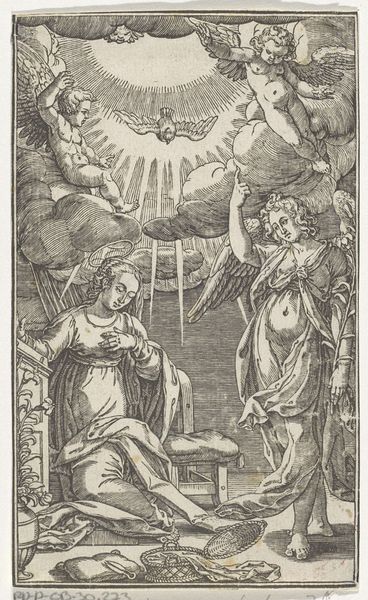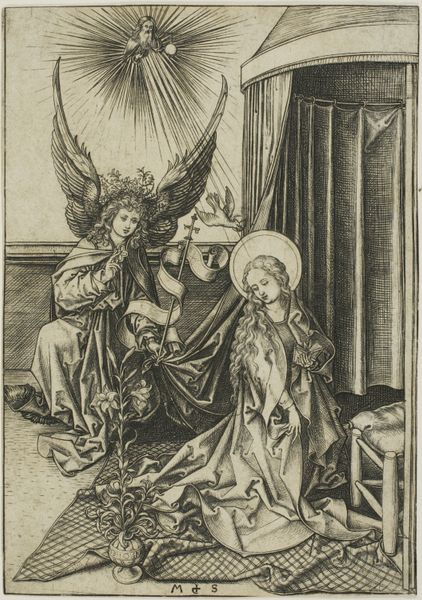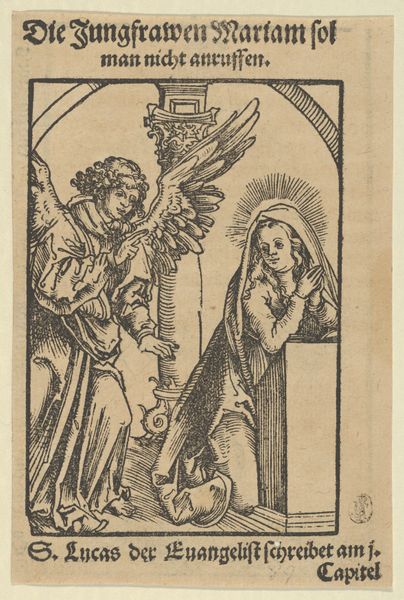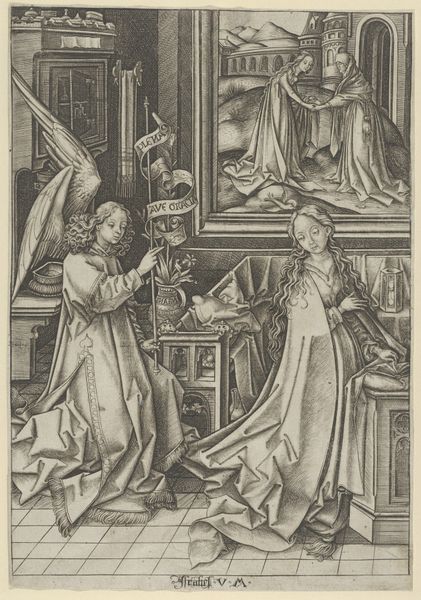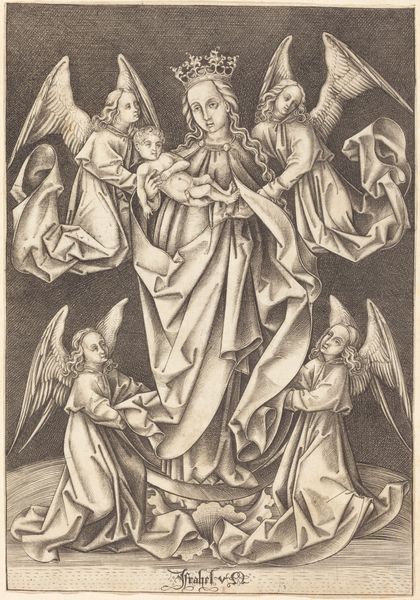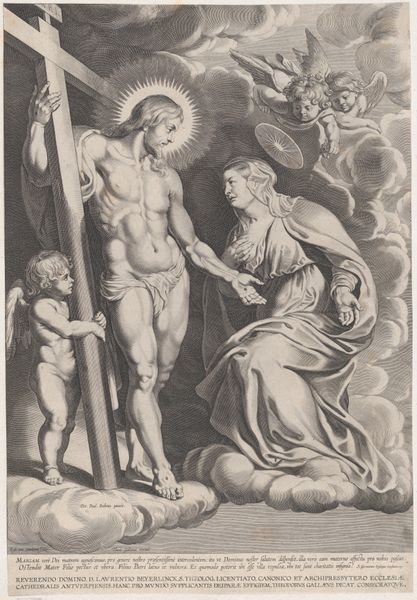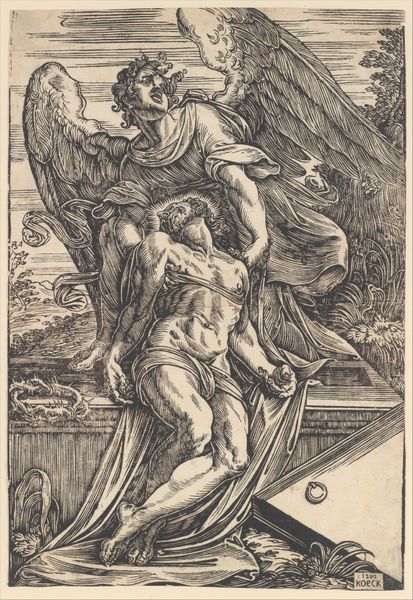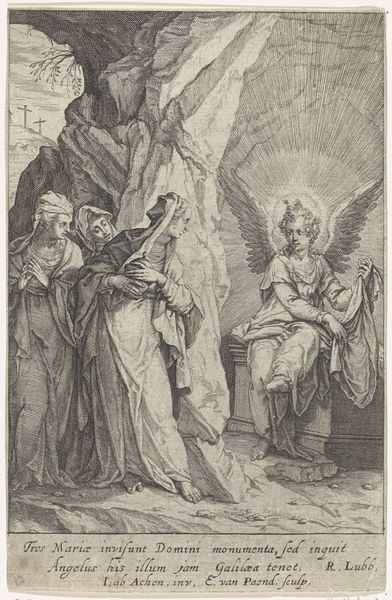
The Annunciation; on the left the archangel Gabriel approaches the praying Virgin Mary in her bedchamber, over her head a dove representing the Holy Ghost, in the sky above a figure of God the Father, after Dürer 1495 - 1539
0:00
0:00
drawing, print, engraving
#
drawing
#
allegory
#
pen drawing
# print
#
figuration
#
line
#
history-painting
#
italian-renaissance
#
engraving
#
virgin-mary
#
angel
Dimensions: Sheet: 5 1/8 × 3 15/16 in. (13 × 10 cm)
Copyright: Public Domain
Editor: This is "The Annunciation; on the left the archangel Gabriel approaches the praying Virgin Mary in her bedchamber, over her head a dove representing the Holy Ghost, in the sky above a figure of God the Father, after Dürer", a print made by Marcantonio Raimondi sometime between 1495 and 1539. It’s incredibly detailed, the lines are so precise! It definitely has a solemn and reverent quality. What strikes you about this piece? Curator: Well, given that it’s an engraving "after Dürer", the immediate question is how it operates within the artistic hierarchy of the time. Raimondi wasn't just copying; he was interpreting and disseminating Dürer's style to a wider audience. How does this reproductive act, facilitated by printmaking, affect the understanding of artistic originality and value? Editor: That's a great question. It does make you wonder who the "author" of the image really is! Is it Dürer, who created the original, or Raimondi, who translated it into this reproducible format? Curator: Exactly! And more broadly, consider how this image circulates within a specific social context. The Church was a major patron of the arts. To what extent does this depiction of the Annunciation reinforce or challenge existing power structures or religious doctrines? Did its accessibility via printmaking alter religious practice? Editor: So, beyond just the artistic merit, its real importance lies in its accessibility and the questions it raises about artistic ownership and religious influence in society at the time? Curator: Precisely. Printmaking democratized art in a way previously unimaginable, but it also created new tensions around artistic property and religious authority. Examining this image lets us explore the intersection of art, commerce, and belief in Renaissance society. Editor: That’s really fascinating, I had only considered it as an artistic object but you've widened my understanding. Thanks! Curator: My pleasure! It’s always good to remember art exists in a larger conversation with history and culture.
Comments
No comments
Be the first to comment and join the conversation on the ultimate creative platform.
